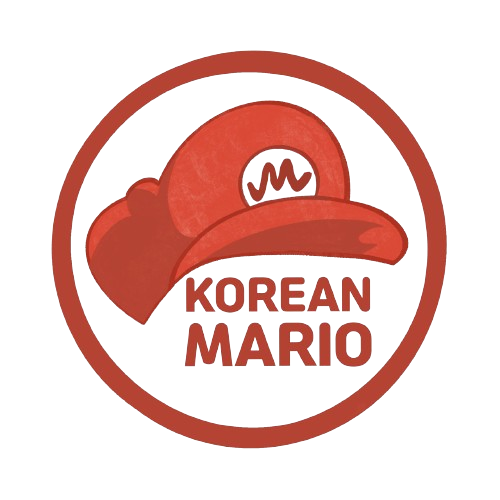Lesson Timetable
Day 1: Self-introduction
Day 2: Direction and Instructions
Day 3: Personal Information
Day 4: Basic Knowledge
Day 5: Company Life and Work
Day 6: EPS Tools
Day 3 Lesson Brief
In our first and second lessons, we covered self-introduction and understanding directions and instructions.
Today, we’re going to delve into sharing more about ourselves, including personal information. This session is equally crucial, as it offers an opportunity to showcase a deeper understanding of Korean language and culture.
By effectively communicating personal details, learners demonstrate not only language proficiency but also cultural awareness and adaptability, all of which are highly valued in a professional setting in Korea.
So, let’s dive into this important aspect of language learning, as it will further enhance your ability to integrate seamlessly into Korean society and workplace environments.
So, in our third lesson:
After orientation, the interviewer asks the interviewee to sit down on a chair and asks about personal information.
They usually ask about family relationships or hobbies.
Then, they ask simple questions that are not too difficult.
Listen to the audio files from this book, practice a lot so that you can answer them at the interview.
However, if you didn’t hear the question clearly, ask, “죄송하지만 다시한번 말해주시겠습니까? (I’m sorry, but could you say it again?)”
And, if you didn’t understand the question, politely say, “죄송하지만 질문을 이해하지 못했습니다. (I’m sorry, but I didn’t understand it.)
Vocab
| 🔊생년월일 birth date | 🔊오늘 today | 🔊부모님 parents | 🔊영화 movie |
| 🔊년 year | 🔊어제 yesterday | 🔊있어요 to have | 🔊색깔 color |
| 🔊월 month | 🔊내일 tomorrow | 🔊없어요 don’t have | 🔊몸무게 weight |
| 🔊일 day | 🔊몇 월 what month | 🔊계절 seasons | 🔊키 height |
| 🔊학원 academy | 🔊며칠 what date | 🔊취미 hobby | 🔊얼마 how many |
| 🔊독학 self-study | 🔊배우다 to learn | 🔊운동 exercise | 🔊언제 when |
Question Bank
🔊 Q: What’s your name?
이름이 뭐예요? / 성함이 어떻게 되세요?
[ireumi mwoeyo/songhami ottoke dweseyo]
🔊 A: I’m Mario.
마리오입니다.
[marioimnida]
🔊 How tall are you?
Q: 키가 몇 센티미터 입니까?
[kiga myot sentimito imnikka]
🔊 My height is 175cm
A: 175cm입니다.
[baekchilsibo sentimito imnida]
🔊 Q: How many family members do you have?
가족이 몇 명입니까?
[gajogi myot myongimnikka]
🔊 A: There are five people in my family.
다섯명입니다.
[dasonmyongimnida]
🔊 Q: Where did you learn Korean?
한국어는 어디에서 배웠어요?
[hangugoneun odieso baewossoyo]
🔊 A: I learned it at a Korean language academy.
한국어 학원에서 배웠습니다.
[hangugo hagwoneso baewotsseumnida]
🔊 Q: Where are you from?
어디에서 왔어요?
[odieso wassoyo]
🔊 A: I’m from Jakarta.
자카르타에서 왔습니다.
[jakareutaeso watsseumnida]
🔊 Q: How much do you weight?
몸무게가 얼마나 나갑니까?
[mommugega olmana nagamnikka]
🔊 A: I weigh 70kg.
70Kg입니다.
[chilsip kilrogram imnida]
🔊 Q: Are you married?
결혼했어요?
[gyolhonhaessoyo]
🔊 A: Yes, I’m married. / No, I’m not married yet.
네 했습니다. / 아니요, 아직 안 했습니다.
[ne haetsseumnida / aniyo ajik an haetsseumnida]
🔊 Q: How long have you learned Korean?
한국어 얼마동안 배웠어요?
[hangugo olmadongan baewossoyo]
🔊 A: I learned it for 6 months.
6개월동안 배웠습니다.
[yukkkaewoldongan baewotsseumnida]
🔊 Q: When is your birth date?
생년월일이 언제예요?
[saengnyonworiri onjeeyo]
🔊 A: It’s March 31, 1996.
1996년 3월 31일입니다.
[chongubaekkkusibyungnyon samwol samsibir irimnida]
🔊 Q: When is your birthday? / When were you born?
생일이 언제예요? / 언제 태어났어요?
[saengiri onjeeyo / onje taeonassoyo]
🔊 A: It’s March 31st.
3월 31일입니다.
[samwol samsibir irimnida]
🔊 Q: Are your parents alive?
부모님이 계세요?
[bumonnimi gyeseyo]
🔊 A: Yes, my parents are alive.
네, 부모님이 계십니다.
[ne bumonnimi gyesimnida]
🔊 Q: What’s your hobby?
취미가 뭐예요?
[chwimiga mwoeyo]
🔊 A: My hobby is exercising.
제 취미는 운동입니다.
[je chwimineun undongimnida]
🔊 Q: What kind of exercise do you like?
무슨 운동을 좋아하세요?
[museun undongeul joahaseyo]
🔊 A: I like badminton.
배드민턴을 좋아합니다.
[baedeumintoneul joahamnida]
🔊 Q: What season do you like?
무슨 계절을 좋아합니까?
[museun gyejoreul joahamnikka]
🔊 A: I like summer.
여름을 좋아합니다.
[yoreumeul joahamnida]
🔊 Q: What color do you like?
무슨 색깔을 좋아하세요?
[museun saekkkareul joahaseyo]
🔊 A: I like blue.
파란색을 좋아합니다.
[paransaegeul joahamnida]
FREE EPS Lesson (Video)
Read more about the most comprehensive EPS TOPIK and interview guide here. (Including free textbook!)
In summary, learning to express ourselves in Korean, whether by introducing ourselves, understanding directions, or sharing personal details, is really important for anyone who wants to live or work in Korea. These basic language skills show not only that we can speak Korean but also that we understand Korean culture. By getting better at these skills, we can feel more comfortable in both work and social situations in Korea. Each lesson helps us learn more, so keep practicing and improving your language skills as you prepare for your time in Korea.
Table of Contents

